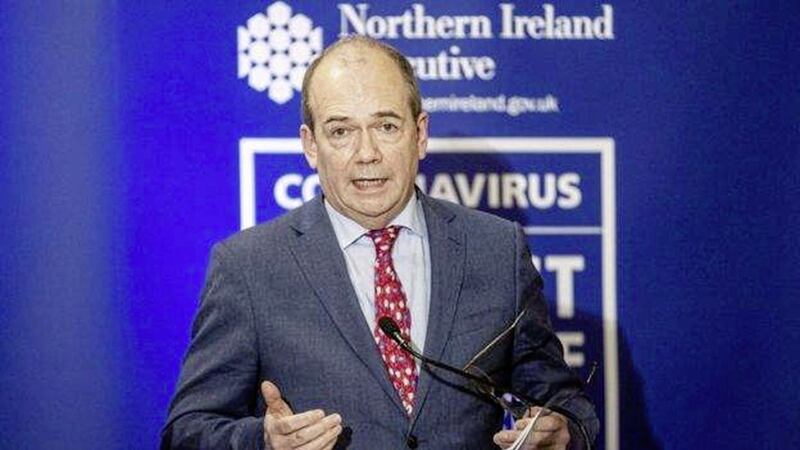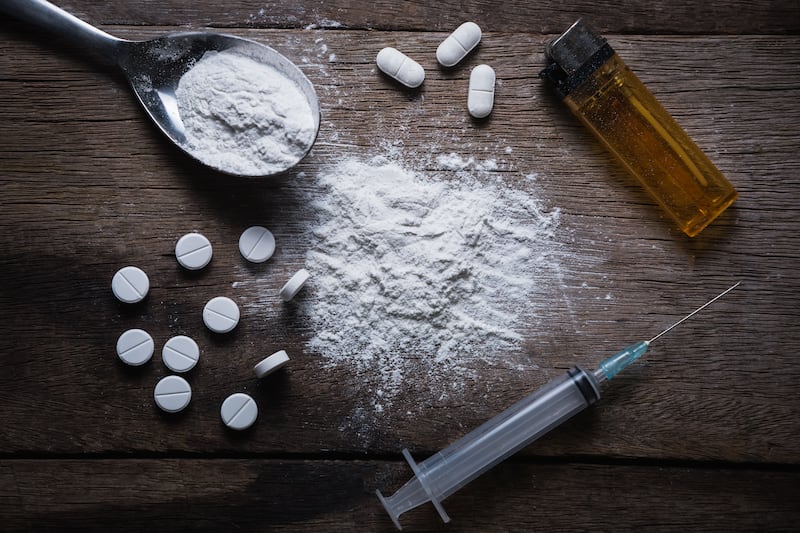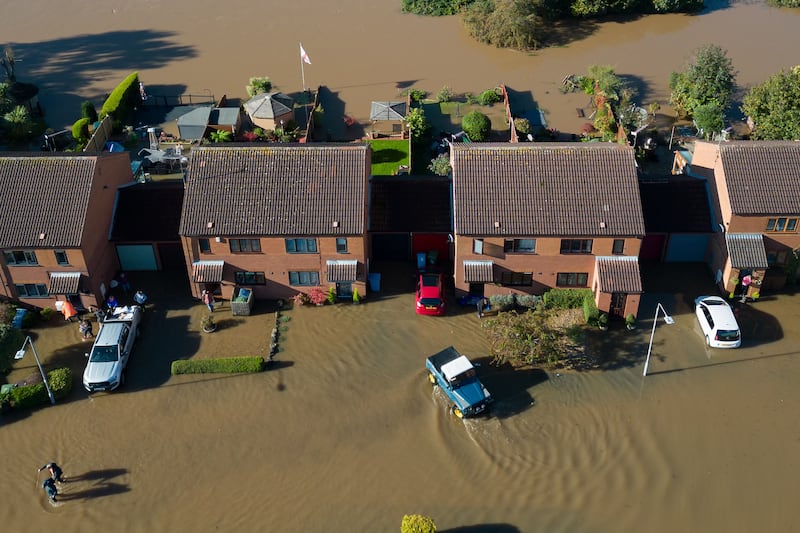Chief Medical Officer Dr Michael McBride has urged testing capacity to be used "intelligently" as the number of deaths from coronavirus in Northern Ireland rose by 13.
The data, released yesterday, brings the total number of confirmed Covid-19 fatalities in the north to 263, while 142 new cases of infection puts the confirmed number of cases in Northern Ireland to 3,016.
Dr McBride said contact tracing to track the spread of coronavirus will begin next week after the process was halted last month, and will be "crucially important" in managing pockets of infection.
"We will not test this virus into submission. This virus is not going away," Dr McBride said.
"We need to use our testing capacity intelligently."
Meanwhile, comments made earlier this week by Sinn Féin junior minister Declan Kearney about reopening the economy have prompted an angry response from Stormont economy minister Dianne Dodds.
Writing in An Phoblacht, Mr Kearney accused "right-wing elements in the British Cabinet" and NI unionists of wanting to relax the lockdown in an act of "corporate greed".
Mr Kearney, the Sinn Féin National Chairman, said the desire to relax current restrictions "is the typical capitalist reflex which puts the market economy first".
However, Minister Dodds described Mr Kearney's comments as "a very regrettable intervention", and insisted saving lives remained the top priority during the pandemic.
"There are many people across all communities who are feeling the pain of Covid-19 and we need to ensure the first and foremost priority we have is to set aside difference and to ensure we protect and save lives," she said.
“That has been our focus, that has been the focus of everyone so far and thankfully that actually is the focus of communities in Northern Ireland, who have sacrificed enormously in order to comply with the regulations. So I want to absolutely make it clear that saving lives is important, this is not a matter of lives versus the economy.
"Saving lives is our utmost priority, but we too must protect the economy and plan for a safe and phased and step-by-step transition back to normality."
In the Republic, the Chief Medical Officer Dr Tony Holohan confirmed that a further 28 people have died of coronavirus, bringing the south's overall total to 794. Testing has revealed a further 936 cases of infection, and the total number of confirmed infections is 17,607.
The chair of the National Public Health Emergency Team's Irish Epidemiological Modelling Advisory Group, Professor Philip Nolan, told the briefing that people should expect higher numbers of infections in coming days due to an increase of testing in residential care homes.
He described the increase in long-term residential care home tests as a "very significant effort", adding: "We will detect previously undetected cases, so for a period of time we will be seeing more cases than one might expect, reflecting a decline in the general population, and an increase in detection in long-term residential care."
Meanwhile, UK health secretary Matt Hancock has offered no further clarity on when the lockdown might end, insisting the time was no right to ease restrictions due to the ongoing threat of a second wave of infections.
Mr Hancock spoke at the daily UK government press briefing in which it was revealed that another 616 people have died of coronavirus in hospitals, bringing the UK total to 18,738. The number of confirmed new infections is 4,583, with a UK total of 138,078.
"Monitoring what is happening and making sure that we move at the right time is absolutely critical," he sad.
"But the message remains the same - that people need to stay at home to protect the NHS and save lives. The reason that we have clarity on that message is that it has succeeded in bringing down and flattening the curve, but we are not through that yet and there's an awful lot of work that still needs to be done, and we are absolutely determined to avoid a second peak."








